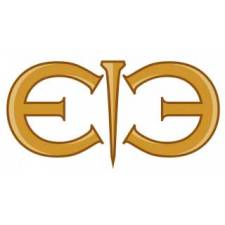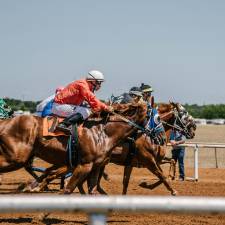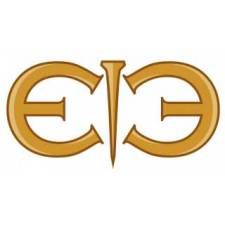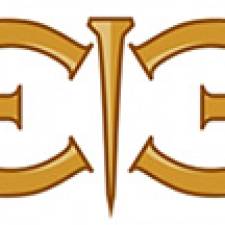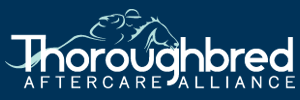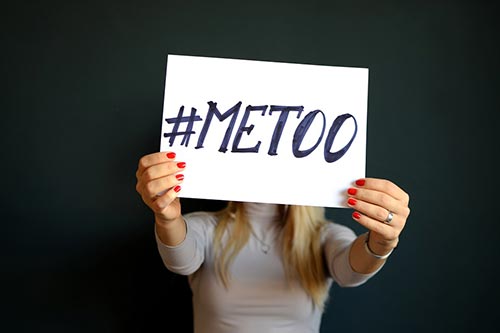
by Natalie Voss
The MeToo sexual harassment movement has yet to find its stride in the horse industry.
In the broader news world, every morning seems to bring a new name of a high-profile man accused of sexual harassment or assault, followed by (sometimes) swift removal of Hollywood stars, producers, political figures, writers, and news anchors from their jobs. As Time magazine put it in its Person of the Year article on ‘Silence Breakers' released last week: “This reckoning appears to have sprung up overnight. But it has actually been simmering for years, decades, centuries. Women have had it with bosses and co-workers who not only cross boundaries but don't even seem to know that boundaries exist. They've had it with the fear of retaliation, of being blackballed, of being fired from a job they can't afford to lose.”
A time when it feels like serial offenders might be hiding behind any well-known name, people have started asking me when this sea change is going to hit the racing business. And I cynically laugh.
It isn't that racing is immune from the problem of harassment. If anything, sexism, and the mistreatment that can sometimes come along with it, are woven into the sport's culture. It was not really that long ago that women were not permitted on the backstretch, only 50 years ago male jockeys refused to ride against women. It was just 39 years ago the Daily Racing Form told Jane Goldstein it didn't hire women, and five years ago top jockey Rosie Napravnik told 60 Minutes she was often told to “stay in the kitchen” by irate railbirds in the course of doing her job.
Having spent most of my professional life in the racing business, I've heard stories of wildly inappropriate comments or questions, repeatedly discouraged advances, and uncomfortable, uninvited physical contact. It doesn't just come from the groom who catcalls the exercise rider, either; just as in Hollywood, there are people at every level of the business who are guilty of such behavior. Let me be clear: women talk to each other about this sort of thing. We know who to avoid getting into an elevator with and which tack rooms to keep out of. I suspect that has always been true.
As the Time article points out, there seemed to be no professional authority to come down on offenders in Hollywood. “Were we supposed to call some fantasy attorney general of moviedom?” Ashley Judd asked.
Thanks to a cultural shift and careful reporting, Judd and others found the inner strength to take their stories to the press and to the courts and the #MeToo movement began, prompting Time's focus on “Silence Breakers.” For those accused in the past year, public outrage has been sufficient for media outlets and production companies to cut ties.
One of the reasons I don't expect a similar series of exposes and firings in racing is that our “public” is much smaller. A revelation about a top trainer, owner, or bloodstock agent wouldn't get tens of thousands of retweets, and therefore would not inspire as large a tidal wave of outraged consumers demanding action by the accused's employer.
Then there's the matter of that employer; a large percentage of the best-paid positions in racing are essentially independent contractors working for multiple individuals. Trainers these days are rarely working in private stables, so to lose their position as a result of scandal would require multiple ownership interests (some as syndicates with dozens of partners) coming to the same conclusion and taking the same action.
The removal of accused men from their positions, of course, has as much or more to do with maintaining a safe work environment for a predator's future female colleagues as it does retribution for past sins. In the same way, removing an abusive horseman from the business should be a means of protecting the horses he will work around. All too often, this is not what happens with horses – why should women realistically expect their safety would be more valuable to racing's higher-ups than that of the animals who carry our livelihoods on their backs?
And it all makes sense: for many participants, horse racing is about winning, and in part, it's about money. For an owner with a stakes prospect, switching a horse away from a high percentage trainer is throwing away value. A sales agent is not going to refuse to buy a sale-topping yearling due to actions of that horse's consignor. Taking a stand is not just impractical, it's expensive.
The racing business is also a small one. The risk of coming out with a story on a high-profile person in racing is that it could backfire on the victim – and possibly the media outlet that aired it. Racing is shrinking, and with it, the availability of jobs. If a victim comes out on the losing end of a public revelation, she (or he) may never find work in the sport again, assuming their abuser is in a higher-up position than they are. Women are already underrepresented in the top levels of the sport; who wants to give up a shot at the winner's circle or the boardroom by opening their mouth?
I hope very much to be wrong in my attitude on this. It's true that in early November, British racing was shocked by the story of former jockey-turned-trainer Gay Kelleway, who told the Daily Mirror a number of stories of harassment and assault from various points in her career. Kelleway, the first female jockey to win a race at Royal Ascot in 1987, said she was pinned against the wall by a fellow rider in the presence of racing officials, who did nothing. The British Horseracing Authority's response was swift, as it publicly announced it took the allegations “extremely seriously” and had launched an investigation.
But America has no Horseracing Authority. We have no fantasy attorney general of Thoroughbredom. We have only ourselves.
About the Author: Natalie Voss, winner of the 2016 Eclipse Award for outstanding news/enterprise writing, is features editor at the Paulick Report.
Copyright © 2017, PaulickReport.com. Republished with permission.








